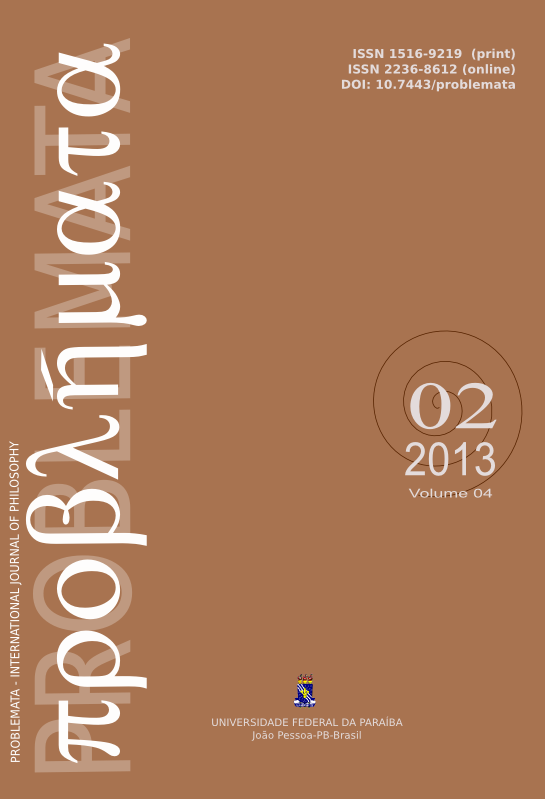O pós-idealismo alemão e a crise da filosofia
DOI:
https://doi.org/10.7443/problemata.v4i2.17316Keywords:
filosofia, historicismo, ciência, idealismoAbstract
O texto discorre, a partir de H. Schnädelbach, acerca da crise instaurada na filosofia após a morte de Hegel, e, destarte, o descrédito no Idealismo Absoluto. O surgimento desta vertente antiidealista vem provocar intensas transformações no conceito de história. Tem origem o historicismo, onde a própria razão reduz-se à história. Paralelamente ao historicismo, o desenvolvimento das ciências, graças também a uma transformação conceitual, passa a fazer oposição à filosofia, e tenta até mesmo absorvê-la. O “fanatismo” científico faz, da ciência mesma, uma ciência empírica e eminentemente verificacionista. Este empirismo científico acaba por incorporar a dinamicidade da vida social, levando à ciência o status de utilitarismo. O texto, enfim, acaba por narrar uma odisséia filosófica a partir do século XIX.Downloads
Download data is not yet available.
Downloads
Published
2013-11-18
Issue
Section
Papers
License
Authors who publish with this journal agree to the following terms:
- Authors retain copyright and grant the journal right of first publication with the work simultaneously licensed under a Creative Commons Attribution License that allows others to share the work with an acknowledgement of the work's authorship and initial publication in this journal.
- Authors are able to enter into separate, additional contractual arrangements for the non-exclusive distribution of the journal's published version of the work (e.g., post it to an institutional repository or publish it in a book), with an acknowledgement of its initial publication in this journal.
-
- Authors are permitted and encouraged to post their work online (e.g., in institutional repositories or on their website) prior to and during the submission process, as it can lead to productive exchanges, as well as earlier and greater citation of published work (See The Effect of Open Access).





